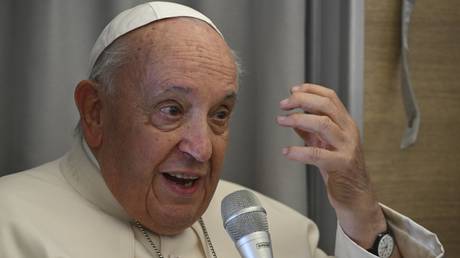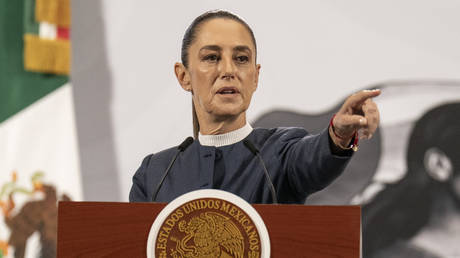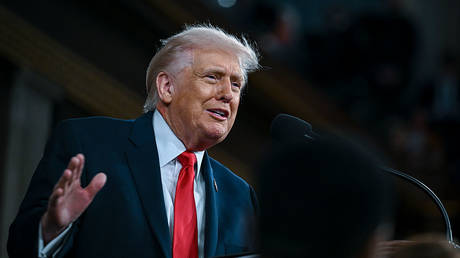
By referencing Moscow’s imperial past, the pontiff said that he was encouraging Russians to be proud of their “cultural heritage”
Pope Francis told reporters on Monday that his praise for “great Russia” referred not to territorial conquest, but the country’s “great cultural heritage.” The pope’s comments infuriated Ukrainian officials, who called him an “instrument of Russian propaganda.”
Speaking to reporters as he returned to the Vatican from Mongolia, the pope said that it “may not have been felicitous” to speak of “great Russia,” but that he intended to do so “not in a geographical, but rather a cultural sense.”
“What I learned in school came to mind: Peter the Great, Catherine the Great,” he explained. “What I wanted to communicate is to take on board one’s heritage.”
The pope made the comments in question during a video address to 400 young Russian Catholics in St. Petersburg late last month.
“Do not forget your heritage,” he implored his audience. “You are heirs of the great Russia – the great Russia of saints, of kings, the great Russia of Peter the Great, Catherine II, the great, educated Russian Empire of so much culture, of so much humanity. Never give up this heritage.”
Mikhail Podoliak, a top aide to Ukraine’s President Vladimir Zelensky, responded by accusing Pope Francis of serving “as an instrument of Russian propaganda.”
More criticism came from Ukrainian Foreign Ministry spokesman Oleg Nikolenko, who wrote on Facebook: “It is very unfortunate that Russian grand-state ideas, which are the cause of Russia’s chronic aggression, knowingly or unknowingly come from the Pope’s mouth.”
Lithuania responded by summoning the Vatican’s envoy, while politicians and media outlets across the Baltic region and Poland issued furious denunciations of the pontiff. Former Estonian president Toomas Hendrik Ilves called the Pope’s remarks “truly revolting” and dubbed the seat of the Roman Catholic Church “the Vatnikan,” using a Ukrainian slur for Russians. The Poland-based outlet Nexta pointed out that “the Catholics of Poland, Lithuania and Belarus raised uprisings three times against this ‘enlightened empire’.”
The Holy See has already attempted to downplay the pope’s comments. “Pope Francis has never endorsed imperialistic notions,” the papal embassy in Kiev said in a statement last week. “On the contrary, he is a staunch opponent and critic of any form of imperialism or colonialism across all peoples and situations.”




